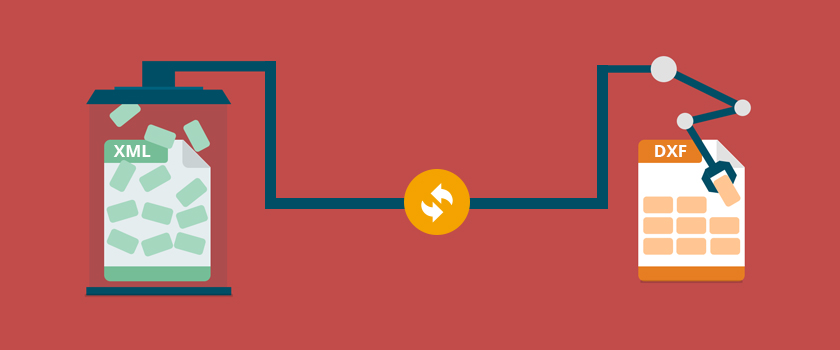Clinical Trials and their Importance in Medical Industry
By: Shahzad Bashir Posted on Fri, 06-10-2023

There was a time when some diseases were considered lethal like Typhoid, TB, and Phenomena. Due to the unavailability of better health care services and treatment people used to die.
Then the time came when medical sciences started to make progress. Many developed countries invested lots of money in medical research that resulted in the cure of many diseases that were once considered lethal.
Medical research is very sensitive because it is related to human life. To check the accuracy of medical research, clinical trials are conducted. These trials are first conducted on animals and if the results are positive then they are conducted on a human being.
Why Clinical Trials are Conducted
Clinical trials are conducted to know whether the specific treatment will work or not. Is it better than other treatments? Moreover, are there any side effects? Clinical trials are undertaken to answer these questions and to provide for the health of the patients.
These trials should be well-designed so that medical staff can know about the effectiveness of the treatment. Without medical trials, it is very risky to give treatments to patients without medical trial because it can put their lives at stake.
Experimentation and Testing

Experimentation and testing are basic parts of medical trials. There are many kinds of clinical trials such as phase 1, phase 2, and phase 3 known as randomized controlled trials. The best type of clinical trial is the randomized clinical trial. It includes different groups in the trial so that the best treatment is given to patients.
Phase 1
A clinical trial is a long process. It has to pass through several stages. For instance, developing a new treatment for a cancer drug will be tested on a few people to get an idea of how it works.
Sometimes healthy volunteers are hired and they are given compensation for taking part in a medical trial. Sometimes already ill people are also hired who have gone through all the usual treatments.
This is a phase 1 process. At this phase, treatment is only given to the people that are only participating in it and it is not compared to other treatments.
Phase 2
In phase 2 researchers come to know much about the drug. During this phase, the drug is tested on a large group of people to understand its safety and side effects and to understand whether the drug is showing positive signs among the patient or not.
This phase also does not include a comparison with other treatments. However, in this phase, the small group of people that are included cannot provide valid results about the effects.
It can be a probability that any positive result for the patient is happening due to any biological change. Therefore, a phase 3 trial is required.
Phase 3 (Randomized Clinical Trials)
Phase 3 trials are tried in large groups. They can experiment on hundreds or even thousands of patients. In this phase, they provide a better method to check whether new treatments are better than previous or existing treatments or not. In short, it can provide valid proof of the side effects of the treatments.
Mostly, phase 3 trials are usually called randomized clinical trials. In this phase, one group is called the experimental group. This group is giving the new treatment. The other group is called the control group and it is given the standard treatment.
If there is no standard treatment present then the control group is not given any treatment. Moreover, they are not given a placebo. In some trials, more than two groups can be included.
A placebo is a treatment that includes no active ingredient. There are many clinical trials in which people have taken a placebo and have shown great improvement in symptoms. By checking the response of the placebo and the treatment being given to the patient, researchers can find out the benefit of the treatment.
There are many ways to make the results of trials valid and accurate. One method is to make a blind trial in which participants are not aware of which group they are in. If they know in which group, they have existed then it might influence them psychologically. Apart from blind trials, some trials are also double-blind.
In this situation none of the participants whether they are doctors, participants, or the people who are treating them know which people are getting which treatments. In this way, doctors can avoid the hopes and expectations that can impact the trial results.
Clinical trials are designed by doctors, researchers, and scientists with input from patients. The first step in a clinical trial is to know the purpose of the questions and their answers.
And then analyze the results of the trials that are already been conducted before. The researchers, doctors, nurses, and patients work together with the trial managers and statisticians to come up with a medical trial.
Why is Translation Important for Clinical Trials?

One important area of medical sciences is the translation of clinical trials. The advantage of the translation is that if medical research is being done in China, then US scientists can also take leverage from clinical trials and continue further research to get valid results.
Some clinical trials also contain formal, technical, and specialized language. Therefore, it is very important to take the assistance of translation services. Translation in the medical clinical trial should avoid subjectivity and ambiguity.
Wrapping Up
As medical trials are conducted by proficient medical researchers, in the same way, clinical trials should be translated by a team of specialized medical professionals. In this regard, you must hire a professional translation agency.
They employ a team of native translators who are not only proficient in linguistics but are also subject matter experts in their field. The best part is that professional medical translation agencies assign the task to a translator who has prior experience in the medical field.
There is no room for error in medical trial translation. In case of any error, the research work done before the medical trial will be void.

dxf: DXF is a CAD data file format developed by Autodesk for CAD data exchange between AutoCAD and other software. docx:
Read more
Mars Translation can help you extract the texts in a DXF file and convert them into a XML file so
Read more
Mars Translation can help you extract the texts in a DWG file and convert them into a Word file so
Read more
Africa is the second largest and second most populous continent. As recent statistics suggest, 1,486,275,887 is the current population of
Read more
No state on the western side of the globe can compare the strategic geographic location, diverse multilingual workforce, and attention
Read more
San Diego is California's second-largest city, and it has a population of 1.3 million from which three million residents are
Read more
Dallas is the largest state in Texas after Houston and San Antonio. It is the ninth most populous city in
Read more
In this day and age, users love to consume video content. Statistics show that almost 90% of all internet users
Read more
Virtual reality is transforming our imaginative worlds into existence. Since childhood, we used to create visionary kingdoms and act like
Read more